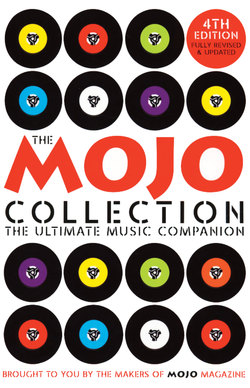Читать книгу The Mojo Collection - Various Mojo Magazine - Страница 131
На сайте Литреса книга снята с продажи.
Small Faces Ogden’s Nut Gone Flake Mods go prog on loveably nutty concept album in circular tobacco-tin sleeve.
ОглавлениеRecord label: Immediate
Produced: Steve Marriott and Ronnie Lane
Recorded: Olympic, Pye, Trident, London; spring 1968.
Release date: June 1968
Chart peaks: 1 (UK) None (US)
Personnel: Steve Marriott (g, v); Ronnie Lane (b, v); Ian McLagan (k, v); Kenny Jones (d); Stanley Unwin (narration); Glyn Johns (e)
Track listing: Ogden’s Nut Gone Flake; Afterglow (Of Your Love) (S); Long Agos And Worlds Apart; Rene; Song Of A Baker; Lazy Sunday (S); Happiness Stan; Rollin’ Over; The Hungry Intruder; The Journey; Mad John; Happydaystoytown
Running time: 38.31
Current CD: Castle CMKTD997 is a 3-disc extravanganza with the album in mono, stereo and a BBC ‘classic albums’ documentary.
Further listening: Their first Immediate album Small Faces (1967) is a must-have and is currently available with extra tracks, while Autumn Stone (1969) mops up late-era rarities and hits.
Further reading: All The Rage: My High Life With Small Faces, The Faces And The Rolling Stones (Ian McLagan, 2000); Steve Marriott: All Too Beautiful (Paolo Hewitt and John Heller, 2005); Quite Naturally: A Day-By-Day Guide To The Career Of The Small Faces (Keith Badman and Terry Rawlings, 1997); www.thesmallfaces.com
Download: iTunes
1968 had started out bumpily for the Small Faces, first with organist Ian McLagan getting nicked for drug possession at Heathrow Airport and then a gruelling visit to Australia with The Who, which saw both groups herded around at gunpoint after an ill-tempered slanging match with the tabloid press. A second album for Andrew Oldham’s Immediate Records was due in the summer, and work on it had been slow, so around Easter time Oldham dispatched the band on a barging holiday up the Thames to replenish their creative juices and, more importantly, finish the new songs.
With dogs, girlfriends and guitars in tow, the group journeyed lazily from Henley to Maidenhead. In between visits to riverside pubs and several nautical disasters, a ‘concept’ for their new record was hatched, relating to the mystical rite de passage of a psychedelic chap called Happiness Stan and his quest to find where the moon went when it waned.
Soon their new Sony cassette machine was full of ideas for songs, the baroque, bombastic melodies and tragi-comic lyrics having strong echoes of the music hall of their native East End.
Throughout May, the band refined the tracks at Olympic Studios, fleshing them out with harpsichord, Mellotron and brass, under the watchful eye of legendary engineer Glyn Johns. ‘The idea was to let the group’s imagination run wild,’ remembers Andrew Oldham. ‘It was like, You wanna go off and live on a barge for a month? Fine. You wanna spend months in the studio doing this record? Great. The most important thing was creating something new and exciting.’
The band originally asked Spike Milligan to script and narrate the links between the Happiness Stan tracks on side two, but he was unavailable so Stanley Unwin was drafted in instead.
Already in the bag were a handful of rockier songs that eventually filled the first side, including the steely drive of Song Of A Baker (sung by Ronnie), the Foxy Lady-ish Rollin’ Over – all throat-shredding Marriott vocals and heavy guitar – and Lazy Sunday, the Cockney sing-along which the band grew to regret after it was released as a single, thus further pigeonholing them as a novelty knees-up band.
On its release in June 1968, in the first ever circular album sleeve with artwork inspired by a tin of ready-rubbed tobacco, Ogden’s shot straight to Number 1. They had undoubtedly produced one of the freshest and most unusual albums of the late ’60s, with a joyous spirit few bands have ever matched since.
